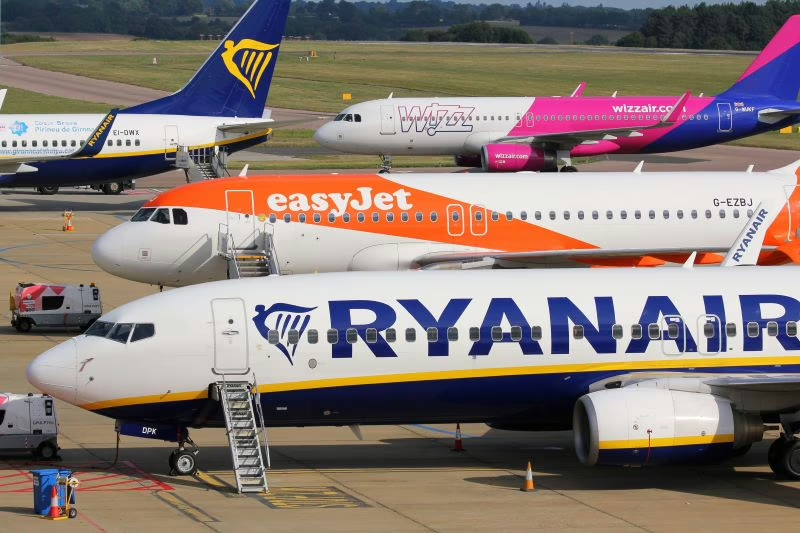Daily Memo: Eurocontrol Forecast Highlights Economic Uncertainty

Eurocontrol’s latest traffic outlook underlines the region’s economic and geopolitical uncertainties, even as the agency revises upwards the number of European flights expected in 2023 and 2024 as post-pandemic pent-up demand continues to drive bookings.
In its spring update to the seven-year traffic outlook presented in October 2022, the European network manager noted that flight movements have developed in line with the base scenario it established last year. That scenario was based on a context of weak GDP and inflation, including for jet fuel, impacting demand as well as lower consumer propensity to fly.
The spring update considers traffic trends since then and revises upwards the expected number of European flights in 2023 and 2024, “due to the continuation of vivid pent-up demand [solid bookings, strong tourist flows in Southern Europe],” Eurocontrol said.
The region’s airlines are focusing on the forthcoming summer season, hoping this will be the first truly normal season since the pandemic. Last year, even if demand was strong—in some cases stronger than before the pandemic—it was marred by widespread disruption because of staff shortages.
Airline CEOs at the recent Airlines for Europe (A4E) summit in Brussels were cautiously confident the sector would be better prepared for summer 2023, even if supply chain issues were affecting fleet maintenance plans.
“Airlines—certainly ourselves—have run through making sure that everything we can control, we are confident we’ve done what we can,” easyJet CEO Johan Lundgren said March 29.
Even if there are problems linked to strikes and reroutings, Lundgren added: “I still do believe the time the industry has had to set ourselves up for this summer means that in general it is better prepared—but we do need to add on 50% more customers into the system with a reduced airspace because of the war in Ukraine.”
Looking further ahead, Eurocontrol expects 11.1 million flights, or the number of flights operated before the pandemic, to be reached in 2025. That is unchanged from the agency’s October 2022 baseline scenario; a more pessimistic and a more optimistic scenario were presented too.
But back in June 2022, Eurocontrol was forecasting a return to 2019 levels earlier, in 2024.
“After 2025, flight growth is expected to average 1.5% per year in the base forecast, owing to the greater uncertainties within the seven-year horizon [higher inflation, pressure on oil prices, environmental concerns],” Eurocontrol said.
On the economic side, the network manager highlighted the downside risks of high inflation, energy supply disruptions and falling consumer confidence.
Overall, it said one of the key factors affecting the updated outlook—and one that is set to have an impact throughout the forecast period, through 2029—is the war in Ukraine and its impact on Belarusian, Moldovan, Russian and Ukrainian airspace.
Eurocontrol also cited the “overall degradation of the economic situation,” including downward revision of GDP forecast for 2023 and 2024 due to the impact of energy supply disruptions, higher inflation and falling confidence.
Higher energy and the cost-of-living crisis are set to affect travel demand, Eurocontrol added.
On the sustainability side, the network manager noted an erosion of domestic flows, affected by changes such as rail-air partnerships in some markets. Other changes include Austria and France’s move to ban some domestic flights where rail alternatives are available and Transavia and KLM increasing ticket prices to pay for sustainable aviation fuel (SAF).
Eurocontrol said the majority of states in southeastern Europe had bounced back to above 2019 levels in 2022, while south and northwestern Europe remained between 2% and 20% below. Northern Europe was significantly impacted by overflights, including from flights to and from Asia, being shifted southeast because of airspace closures due to Russia’s invasion of Ukraine.
The network manager is not factoring in a return to “normal” routings—prior to the closure of Ukrainian and Russian airspaces—by the end of the seven-year horizon.
